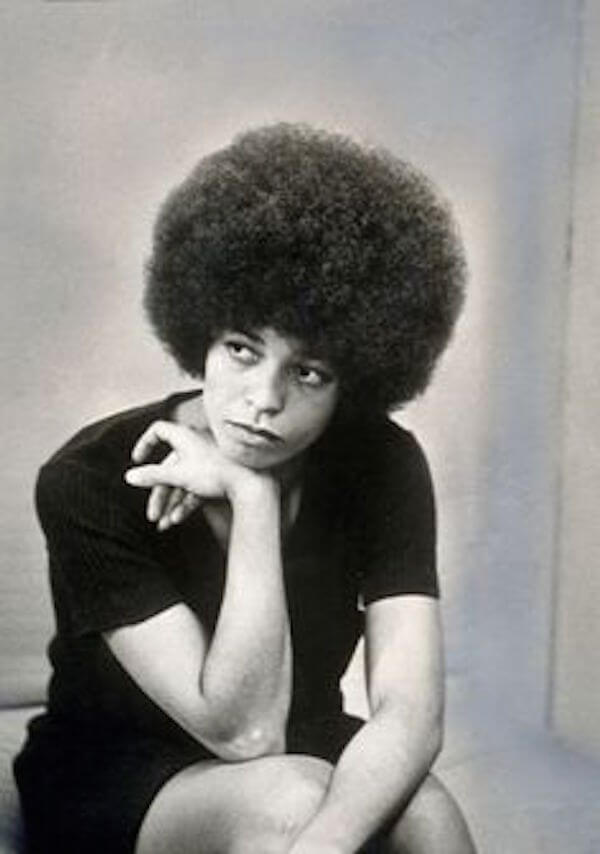Angela Davis

Angela Davis is an activist, scholar and writer who advocates for the oppressed. She has authored several books, including Women, Culture & Politics.
Angela Davis, born on January 26, 1944, in Birmingham, Alabama, became a master scholar who studied at the Sorbonne. She joined the U.S. Communist Party and was jailed for charges related to a prison outbreak, though ultimately cleared. Known for books like Women, Race & Class, she has worked as a professor and activist who advocates gender equity, prison reform and alliances across color lines.
-----
Angela Davis is one of the major voices behind the Black Power Movement. Her influential book, Women, Race and Class, examines the history of black women in the United States through a Marxist perspective, highlighting reproductive rights among other issues pertaining to women of color.
In 2013, she also wrote: "Feminism involves so much more than gender equality. And it involves so much more than gender. Feminism must involve a consciousness of capitalism (I mean, the feminism that I relate to. And there are multiple Feminisms, right). It has to involve a consciousness of capitalism and racism and colonialism and post colonialities and ability and more genders than we can even imagine, and more sexualities than we ever thought we could name."
Early Life
Writer, activist and educator Angela Davis was born on January 26, 1944, in Birmingham, Alabama. Davis is best known as a radical African-American educator and activist for civil rights and other social issues. She knew about racial prejudice from her experiences with discrimination growing up in Alabama. As a teenager, Davis organized interracial study groups, which were broken up by the police. She also knew several of the young African-American girls killed in the Birmingham church bombing of 1963.
Academic Career
Davis later moved north and went to Brandeis University in Massachusetts where she studied philosophy with Herbert Marcuse. As a graduate student at the University of California, San Diego, in the late 1960s, she was associated with several groups including the Black Panthers. But she spent most of her time working with the Che-Lumumba Club, which was all-black branch of the Communist Party.
Hired to teach at the University of California, Los Angeles, Davis ran into trouble with the school's administration because of her association with communism. They fired her, but she fought them in court and got her job back. Davis still ended up leaving when her contract expired in 1970.
Soledad Brothers
Outside of academia, Davis had become a strong supporter of three prison inmates of Soledad Prison known as the Soledad brothers (they were not related). These three men -- John W. Cluchette, Fleeta Drumgo and George Lester Jackson -- were accused of killing a prison guard after several African-American inmates had been killed in a fight by another guard. Some thought these prisoners were being used as scapegoats because of the political work within the prison.
During Jackson's trial in August 1970, an escape attempt was made and several people in the courtroom were killed. Davis was brought up on several charges, including murder, for her alleged part in the event. There were two main pieces of evidence used at trial: the guns used were registered to her, and she was reportedly in love with Jackson. After spending roughly 18 months in jail, Davis was acquitted in June 1972.
Later Years
After spending time traveling and lecturing, Davis returned to teaching. Today, she is a professor at the University of California, Santa Cruz, where she teaches courses on the history of consciousness. Davis is the author of several books, including Women, Race, and Class (1980) and Are Prisons Obsolete? (2003).

Publications:
- If They Come in the Morning: Voices of Resistance (Third Press, 1971)
- Angela Davis: An Autobiography (Random House, 1974)
- Women, Race, and Class (Random House, 1981)
- Women, Culture and Politics (Random House, 1989)
- The Angela Y. Davis Reader (Wiley-Blackwell, 1998)
- Blues Legacies and Black Feminism: Gertrude “Ma” Rainey, Bessie Smith, and Billie Holiday(Pantheon, 1998)
- Are Prisons Obsolete? (Seven Stories Press, 2003)
- Abolition Democracy: Beyond Prisons, Torture, and Empire (Seven Stories Press, 2005)
- The Meaning of Freedom: And Other Difficult Dialogues (City Lights, 2012)
- Freedom Is a Constant Struggle: Ferguson, Palestine, and the Foundations of a Movement(Haymarket Books, 2016)
Sources:
https://www.biography.com/people/angela-davis-9267589
https://fairygodboss.com/career-topics/famous-black-feminists
Broader Terms
More specific terms
- NTI2 ↓ black feminism
Related terms
- RT⇆ Grada Kilomba




